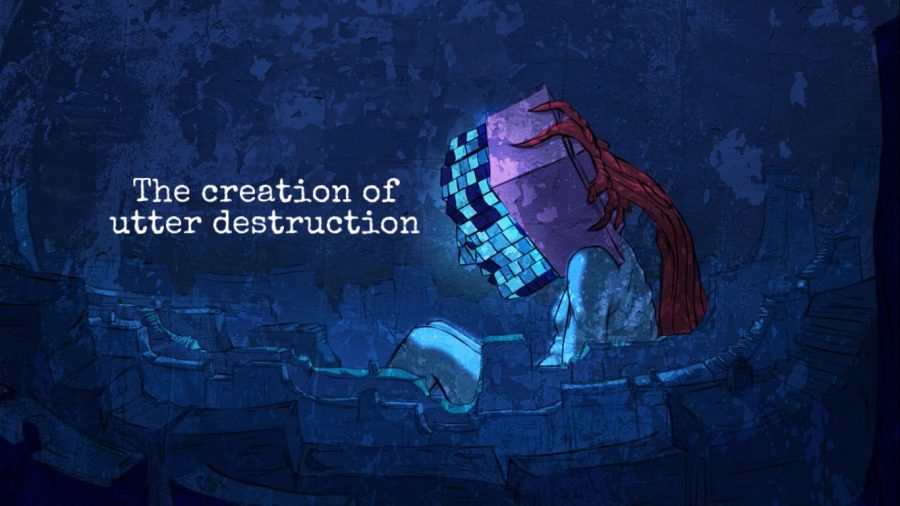Technology: the creation of utter destruction
Experts work together to expose the truth behind society’s addiction to technology in the Netflix documentary, “The Social Dilemma”. The tech industry uses psychology to manipulate the human mind and influence it subconsciously. American technology ethicist, Tristan Harris, expresses his disdain for such unethicality as this documentary unravels these vast tech issues and warns viewers about the inevitable destruction coming their way. In order to reach salvation, humanity must somehow overcome a creation that knows us better than we know ourselves.
September 3, 2021
The Netflix documentary, “The Social Dilemma”, discusses the unsettling truth about technology’s power to unravel society. The opening scene presents an interviewer asking different employees of the tech industry about their perception of the main problem surrounding technology. Each interviewee goes momentarily silent, unable to condense the vast issues of tech into one central problem, but rather a domino effect of damage stemming from it. American technology ethicist, Tristan Harris, begins expressing his concern for the industry by introducing its unethical ways.
“I felt personally addicted to e-mail, and I found it fascinating that there was no one at Gmail working on making it less addictive,” Harris said.
After this, Harris began pushing for what he calls “ethical design”, stemming from the idea that a group of designers cannot morally make decisions about apps for billions of people, and he warns about the harm it causes. Later on in the documentary, Harris reveals that humans fear the possibility of tech overcoming human strength when they should fear the way it already overcame human weakness. This point represents the foundation of the social dilemma: The tech industry’s use of psychology to infect a vulnerable human race with a subconscious addiction.
Dr. Anna Lembke, Medical director of addiction medicine at Stanford University, explains that human brains need human connection, it releases dopamine in the reward pathway. So logically, any platform that creates a sense of connection could turn into addiction on its own, and the manipulation of the tech industry amplifies that.
“We get rewarded in these short-term signals; hearts, likes, thumbs-up. And we conflate that with value and truth… it’s fake, brittle popularity that’s short-term and leaves you even more vacant and empty than before you did it,” former Facebook VP of growth, Chamath Palihapitiya said.
Roger McNamee, an investor in technology for 35 years, talks about how Silicon Valley began by simply selling hardware and software to customers. However, within the past ten years, their main source of income became selling their customers to advertisers.
Tech companies track, store, and monitor every online behavior of their users. That data then feeds through systems to become predictions about what interests the user, what triggers their different emotions, and what matches their personal biases. This formula, or the “algorithm”, positively influences ad revenue by cushioning users within their own worldview. This false sense of security and knowledge also leads to ignorance.
Randima Fernando, former product manager of NVIDIA, warns that technology will continue to advance much faster than human minds and therefore we cannot “wait to adapt”. Technological problems will continue to grow deeper into society rather than resolving over time. Harris also rightly expresses his concern for the future, explaining that the next generations may not remember how life looked before the influence of technology.
“How do you wake up from the matrix when you don’t know you’re in the matrix?” Harris said.
Despite possible solutions to this dilemma, their success depends on society’s willingness to recognize manipulation and overcome division on a daily basis. The documentary ends with an interviewer asking Harris if he believes in humanity’s ability to reach salvation from this chaos. His simple response: “We have to”.
The Chant’s Grade: A






